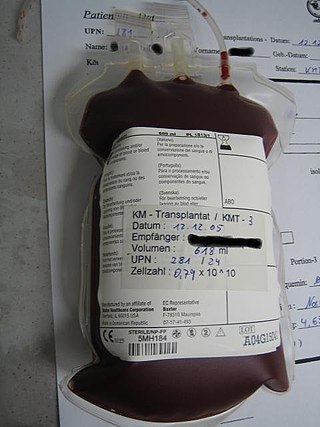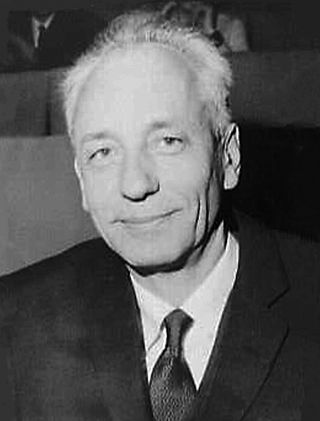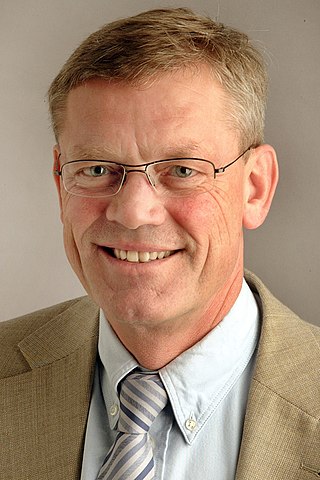Histocompatibility, or tissue compatibility, is the property of having the same, or sufficiently similar, alleles of a set of genes called human leukocyte antigens (HLA), or major histocompatibility complex (MHC). Each individual expresses many unique HLA proteins on the surface of their cells, which signal to the immune system whether a cell is part of the self or an invading organism. T cells recognize foreign HLA molecules and trigger an immune response to destroy the foreign cells. Histocompatibility testing is most relevant for topics related to whole organ, tissue, or stem cell transplants, where the similarity or difference between the donor's HLA alleles and the recipient's triggers the immune system to reject the transplant. The wide variety of potential HLA alleles lead to unique combinations in individuals and make matching difficult.

The major histocompatibility complex (MHC) is a large locus on vertebrate DNA containing a set of closely linked polymorphic genes that code for cell surface proteins essential for the adaptive immune system. These cell surface proteins are called MHC molecules.

Transplant rejection occurs when transplanted tissue is rejected by the recipient's immune system, which destroys the transplanted tissue. Transplant rejection can be lessened by determining the molecular similitude between donor and recipient and by use of immunosuppressant drugs after transplant.

Hematopoietic stem-cell transplantation (HSCT) is the transplantation of multipotent hematopoietic stem cells, usually derived from bone marrow, peripheral blood, or umbilical cord blood in order to replicate inside of a patient and to produce additional normal blood cells. It may be autologous, allogeneic or syngeneic.

Graft-versus-host disease (GvHD) is a syndrome, characterized by inflammation in different organs. GvHD is commonly associated with bone marrow transplants and stem cell transplants.
Alloimmunity is an immune response to nonself antigens from members of the same species, which are called alloantigens or isoantigens. Two major types of alloantigens are blood group antigens and histocompatibility antigens. In alloimmunity, the body creates antibodies against the alloantigens, attacking transfused blood, allotransplanted tissue, and even the fetus in some cases. Alloimmune (isoimmune) response results in graft rejection, which is manifested as deterioration or complete loss of graft function. In contrast, autoimmunity is an immune response to the self's own antigens. Alloimmunization (isoimmunization) is the process of becoming alloimmune, that is, developing the relevant antibodies for the first time.

Jean-Baptiste-Gabriel-Joachim Dausset was a French immunologist born in Toulouse, France. Dausset received the Nobel Prize in Physiology or Medicine in 1980 along with Baruj Benacerraf and George Davis Snell for their discovery and characterisation of the genes making the major histocompatibility complex. Using the money from his Nobel Prize and a grant from the French Television, Dausset founded the Human Polymorphism Study Center (CEPH) in 1984, which was later renamed the Foundation Jean Dausset-CEPH in his honour. He married Rose Mayoral in 1963, with whom he had two children, Henri and Irène. Jean Dausset died on June 6, 2009, in Majorca, Spain, at the age of 92.
Tissue typing is a procedure in which the tissues of a prospective donor and recipient are tested for compatibility prior to transplantation. Mismatched donor and recipient tissues can lead to rejection of the tissues. There are multiple methods of tissue typing.

Minor histocompatibility antigen are peptides presented on the cellular surface of donated organs that are known to give an immunological response in some organ transplants. They cause problems of rejection less frequently than those of the major histocompatibility complex (MHC). Minor histocompatibility antigens (MiHAs) are diverse, short segments of proteins and are referred to as peptides. These peptides are normally around 9-12 amino acids in length and are bound to both the major histocompatibility complex (MHC) class I and class II proteins. Peptide sequences can differ among individuals and these differences arise from SNPs in the coding region of genes, gene deletions, frameshift mutations, or insertions. About a third of the characterized MiHAs come from the Y chromosome. Prior to becoming a short peptide sequence, the proteins expressed by these polymorphic or diverse genes need to be digested in the proteasome into shorter peptides. These endogenous or self peptides are then transported into the endoplasmic reticulum with a peptide transporter pump called TAP where they encounter and bind to the MHC class I molecule. This contrasts with MHC class II molecules's antigens which are peptides derived from phagocytosis/endocytosis and molecular degradation of non-self entities' proteins, usually by antigen-presenting cells. MiHA antigens are either ubiquitously expressed in most tissue like skin and intestines or restrictively expressed in the immune cells.

Paul Ichiro Terasaki was an American scientist in the field of human organ transplant technology, and professor emeritus of surgery at UCLA School of Medicine.

Ronald D. Guttmann MD, FRCPC, FCAHS, was born in Minneapolis, Minnesota in 1936 and received his post secondary school education at the University of Minnesota, receiving a B.A. Magna Cum Laude in 1958, and a B.S. and M.D. degree in 1961. He did his Medical Internship at the University of California San Francisco, military service in the USNR at the Tissue Bank, National Naval Medical Center, Bethesda, Medical Residency on the II & IV (Harvard) Medical Service at Boston City Hospital, and a Research & Clinical Fellowship at the Peter Bent Brigham Hospital(now Brigham & Women's Hospital) and Harvard Medical School. In 1969, he was appointed associate in medicine at the Peter Bent Brigham Hospital and instructor in medicine at Harvard Medical School, and permanently moved to Montreal, Canada in 1970 to become director of the transplantation service at the Royal Victoria Hospital and McGill University Clinic and associate professor of medicine, McGill University Faculty of Medicine. During his academic career he directed an active basic and clinical research laboratory program focused on transplantation immunobiology, immunogenetics, immunosuppression, and long term-complications of transplant patients. He also developed an interest in social and ethical issues of transplantation, organ shortage, and human rights abuses.
Jack Leonard Strominger is the Higgins Professor of Biochemistry at Harvard University, specializing in the structure and function of human histocompatibility proteins and their role in disease. He won the Albert Lasker Award for Basic Medical Research in 1995.
Human Immunology is a peer-reviewed academic journal published by Elsevier. This journal features original research articles, review articles and brief communications on the subjects of immunogenetics, cellular immunology and immune regulation, and clinical immunology, and is the journal of the American Society for Histocompatibility and Immunogenetics (ASHI).
The Banff Foundation for Allograft Pathology also known as the Banff Foundation for Transplant Pathology is a nonprofit Swiss foundation which aims to "lead development and dissemination of the international Banff Classification of Allograft Pathology and to facilitate multidisciplinary, collaborative research to enhance its scientific basis and clinical utility to improve the care of transplant patients". Its predecessor group had organized transplant pathology meetings in every odd numbered year since 1991 and the Foundation has specific future meeting plans through 2025. The meetings establish and maintain the worldwide standards for tissue biopsy reporting and diagnosis of transplant rejection through consensus decision making. They thereby provide an essential service to the field of allotransplantation. The goals of the Banff foundation are to facilitate knowledge generation and translation in transplantation pathology with the ultimate aim of improving patient outcomes, maintaining the Banff meeting spirit of a multinational, multidisciplinary consensus group, raising funds for research and education in transplantation pathology, providing guidance and financial support for Working Group activities and Banff meetings activities. Kim Solez is the Chair of the Banff Foundation for Allograft Pathology. The 2015 Banff Conference for Allograft Pathology was held in conjunction with the Canadian Society of Transplantation in Vancouver, BC, and included consideration of molecular pathology and tissue engineering pathology as well as traditional light microscopy, immunofluorescence, and electron microscopy. The 2017 Banff Conference was held in Barcelona, Spain. The 2019 Banff Conference was held in Pittsburgh, Pennsylvania, and the 2021 Banff Conference will be in Banff, Alberta, Canada.

Axel Haverich is a German cardiac surgeon.

Narinder Kumar Mehra is an Indian immunologist, head of the department of transplant immunology and immunogenetics of the SRL Limited, Gurgaon. He is a former dean of research and holds the ICMR Dr. C.G. Pandit National Chair at AIIMS. An elected fellow of the International Medical Sciences Academy, The World Academy of Sciences, Indian National Science Academy and National Academy of Sciences, India, Mehra is known for his research on histocompatibility and immunogenetics. The Council of Scientific and Industrial Research, the apex agency of the Government of India for scientific research, awarded him the Shanti Swarup Bhatnagar Prize for Science and Technology, one of the highest Indian science awards for his contributions to Medical Sciences in 1992. He received the Chevalier of the National Order of Merit from François Mitterrand in 2003.
Thalachallour Mohanakumar is an Indian academic and professor with a research interest in tumor immunology for lung/breast cancer and bone marrow transplantation. His academic title is the Jacqueline G. and William E. Maritz professor of surgery, Pathology, and Immunology in the Department of Surgery at Washington University School of Medicine.
Alexandre Loupy is a French nephrologist, a university professor and hospital practitioner at the Necker Hospital of the Assistance Publique - Hôpitaux de Paris, in the kidney transplant department. He is known for his discoveries on the topic of graft rejection.,, Its approach proposing innovative methodological tools has led to a better understanding but has also led to important changes in the international classification of graft rejection., These discoveries allow to improve the performance of clinical trials and to consider new therapeutic innovations in transplantation.
Transplant engineering is a variant of genetic organ engineering which comprises allograft, autograft and xenograft engineering. In allograft engineering the graft is substantially modified by altering its genetic composition. The genetic modification can be permanent or transient. The aim of modifying the allograft is usually the mitigation of immunological graft rejection.

Kamala Balakrishnan was an Indian military officer and immunologist. She was a lieutenant colonel in the Indian Armed Forces, president of the American Society of Histocompatibility and Immunogenetics (ASHI), and director of the Transplantation Immunology Division at the Paul Hoxworth Blood Center in Cincinnati, Ohio.











